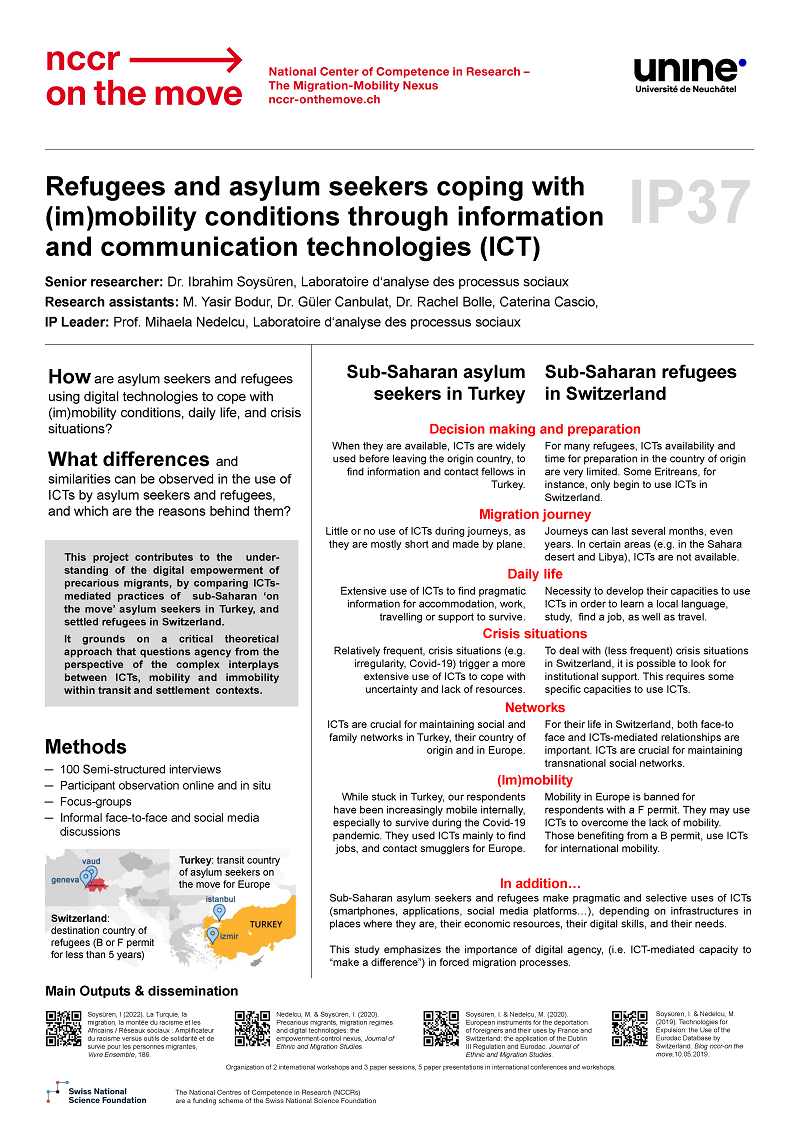Mihaela Nedelcu
Digital Empowerment of Asylum Seekers in Turkey and Refugees in Switzerland to Cope With (Im)Mobility Conditions
Project Summary
In the field of digital migration studies, existing research stresses that digitalization offers new agency tools for migrants, while generating new structural constraints to their actions and (im)mobilities. This project questions the digital empowerment of precarious migrants by unpacking ICTs-mediated practices of asylum seekers and refugees from a Migration-Mobility Nexus perspective. We explore how asylum seekers and refugees use digital technologies to cope with (im)mobility conditions, daily life, and crises. The focus on the ICTs becomes an analytical lens on the complex relationships between mobility and immobility within migration trajectories.
By adopting a comparative and qualitative approach, we focus on the cases of asylum seekers and refugees from sub-Saharan countries in a transit country (Turkey) and in a destination country (Switzerland). Considering ICTs at three different levels (as research object, fieldwork, and tools), we combine virtual methods with more traditional qualitative research tools to triangulate collected data.
Scientific Poster 2022 (PDF)
Key Findings:
- Sub-Saharan asylum seekers and refugees make a pragmatic and selective use of ICTs (smartphones, applications, social media platforms, etc.) depending on infrastructures in places where they are, their economic resources, their digital skills, and their needs.
- This study emphasizes the importance of digital agency (i.e., ICT-mediated capacity to ‘make a difference’) in forced migration processes.
Project-related scientific publications


